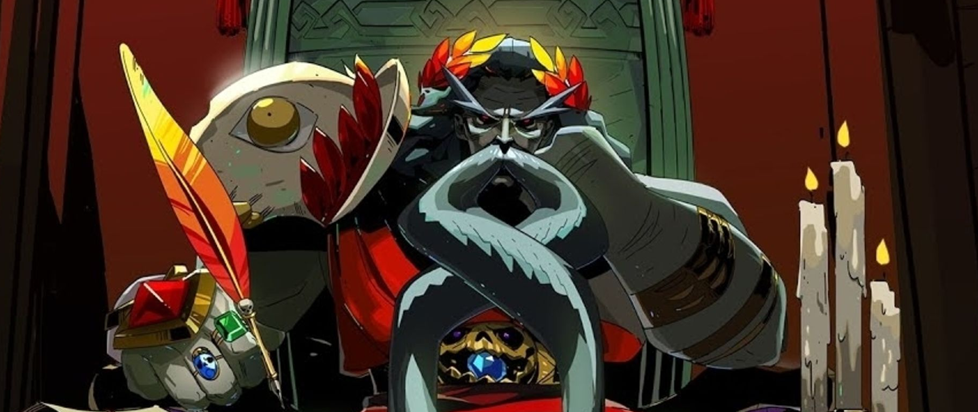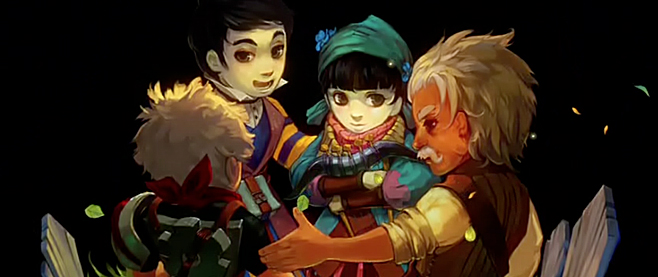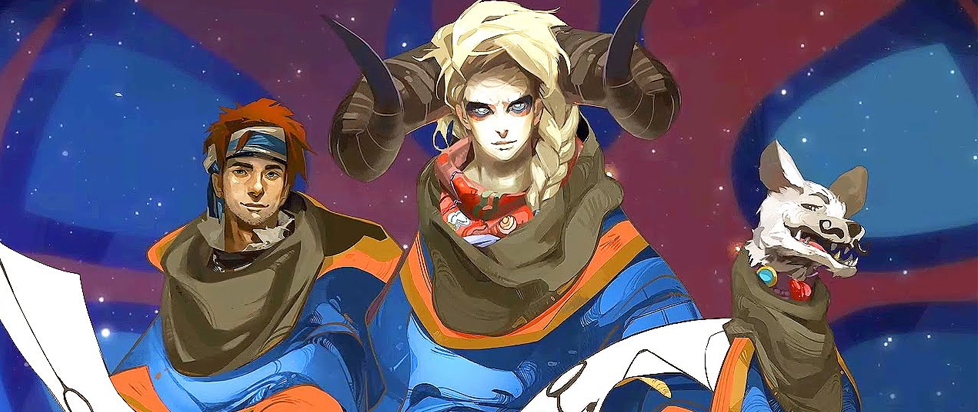
Hey, Dad: Hades & Fatherhood
It’s not uncommon to hear that someone familiar with Hades has formed a significant emotional connection with it. For most, this sentiment tends to take the shape of camaraderie with protagonist Zagreus for his seemingly endless attempts to escape his hellscape of a home. (As it turns out, spending the better part of a year in the formless temporal haze of quarantine lockdown with an ongoing stream of catastrophic news as a constant reminder of powerlessness conjures feelings similar to those of a mythological realm of death and punishment. Who knew?) I’d be lying if I said I didn’t sympathize with this notion as well, but my relationship with the game gets a bit more personal.
I was finally finding my footing in Hades and working out consistently successful win strategies in early November of last year, which just so happened to line up with the first anniversary of my father’s death. Let me tell you – even for as obvious an observation as it might seem – when you’ve had a complicated, antagonistic relationship with a male role model, the story of a young man struggling to break free from the grasp of a condescending, vindictively aloof father resonates in ways you might not expect. The first time I successfully guided Zag to a showdown with Hades and their pre-familicidal verbal exchange started, the adrenal final boss chills were immediately snuffed by the kind of wide-eyed, cavernous pit in my stomach that can only come from a particularly traumatic strain of deja vu.
“This is a conversation with my father.”
Now, my dad never lied to me about my parentage or threatened me with physical harm, but those are so far from the root of what makes Supergiant’s take on the lord of the underworld as notably vile as he is that they feel almost irrelevant. It’s in the everyday injuries – the baseline of venomous sarcasm, the ever-present emotional bulwark of toxic masculinity, the absolute refusal to budge from archaic beliefs long enough to even consider honest self-reflection – and it’s there where the monitor started feeling a little too close to a mirror into my recent past for my comfort.
The element of impending death elevated the parallel from noteworthy to eerily uncanny for me. Thanks to his bullheadedness (which was less extreme in my youth but grew explosively with conservative radicalization in his final years) Dad didn’t feel the need to follow his doctor’s instructions to rest following major surgery, and after overexertion led to a domino effect of rapid fire complications he ended up hospitalized and comatose with an infinitesimally low chance of resuscitation, the possibility of him awakening in anything but a vegetative state even lower. My mother, understandably in denial over the day’s sudden developments and already starting to lose her own fight with dementia, was mentally unfit to make a call on his condition. As the only child, it fell to me.
With no real hope of recovery, and in accordance with the wishes he’d made clear in no uncertain terms when he was well, I gave approval for him to be taken off of life support. I watched the last vestiges of life evaporate from him, medical displays steadily and grimly confirming nonresponse. Any logic I could muster told me I wasn’t responsible for him ending up in this situation and that this was the only course of action that made sense, but the persistent voice from the darkest corner of my mind produced a mantra that metastasized the silent, wretched fantasy I’d cursed myself countless times over the years for ever even humoring in passing: You finally killed him.
Patricide – actual or imagined – turned out not to be the end, for Zagreus or for me: For him, having the god of the dead for a father (not to mention a few other details) meant Hades’ demise equaled out to an involuntary express ticket back home for both of them to start the whole process over again; For me, it was because the exact opposite was true. There’d be no more time to maneuver our endlessly awkward emotional stalemate, no chance to expand the hasty, artificial peace we’d brokered in the name of expediency in the weeks prior into something more genuine. No going back. I thought I’d made peace with that fact in the following months as I settled his remaining affairs, but no sooner did I watch Zag reawaken in his pit nearly a year later than I found myself back in mine.
My next several runs of the game doubled as mini-therapy sessions. Given the sheer number of parallels, I started out by projecting myself more onto Zagreus in hopes of finding a new angle to process my freshly resurfaced snarl of emotions, but it was ultimately the structure of the game itself that shone a light on my predicament – set out, assemble resources, concoct strategy, test abilities, deal with father, return to baseline, set out again with more experience. This is the roguelike gameplay loop. This is the grieving process.
On the advice of my actual therapist I started exploring grief models, and since I’m a visual learner illustrated models were the most readily digestible. However, once I started digging in I noticed a strange commonality, not in content but form; Most of them were structured as circles, either completely self-contained or with the desired outcome shown as an escape trajectory. Seeing this, it struck me that I’d been running in my own psychological circles instead of actually addressing the issue, trying to find a solution to make the situation simply go away, to beat the mental specter of my father into submission as though it was something to expunge from my memory wholesale. To escape that would be to escape myself – the summation of my lived experience – and continuing to attempt escape would accomplish little besides compounding my frustration while continuously retreading the same ground. I couldn’t continue the pattern of appropriately Sisyphean stagnation, nor could I simply walk away or make it disappear.
Funnily enough, the visual model that led me to my breakthrough on this was one for a widely discredited theory: the Kübler-Ross model, popularly known as “The Five Stages of Grief.” Rather than its commonly referenced progression of denial, anger, bargaining, depression and acceptance, it was the specific graphic representation of the idea that really struck a chord. It was displayed as a sine wave, presenting a very similar sequence of events but with each end instead stretching on into the unknown in either direction. There was life before this, and there will be life after it. Some of that life might include more feelings about this, but there will be plenty more after that as well. The objective isn’t to kill the bad feelings or force myself to constantly revisit them, it’s to address them as they come and find a way to return to stability.
This would involve recontextualization as opposed to erasure, which I thankfully soon found perfectly represented in the Lois Tonkin model. This model contrasts the common expectation of grief being a temporary wound on your psyche – something that eventually shrinks away and gives way to the previous status quo – with the idea that growth comes from integration. Grief may be an indelible mark on the self, but no more than any other event in your life, positive or negative. No different from a failed run at escaping the underworld, even painful events yield useful experience to channel into self-improvement. The experience is only a loss if you fail to learn from it.
This ends up being true equally mechanically and narratively for Zagreus: After he and Hades clear the air regarding the situation with his disappeared mother, Persephone, and his escape attempts are recontextualized into a conveniently synergistic excuse to continue the established gameplay loop, the two enter into a grudging but sincere peace. Zag may still disagree with the reasoning behind his father’s decisions, but he comes to understand that they were done out of a desire to protect him, not stifle him. Honestly, I’m more than a little jealous. While I could assume the same of my father, and I know that no all-powerful author constructed his life to end in a thematically satisfying way for either of us, I can’t help but remain a little bitter that I’ll never have the opportunity to definitively settle things with him. I’m learning to deal with that. Maybe time will allow me to see more of Hades’ closely-guarded good intentions in him, as well.
Hey, Dad. See you in Hell. Hopefully.
George Umbarger is an accountant by day, cat owner by night and degreed media writer/overthinker by whatever’s left. Witness his serial retweeting spree at @KNOKAFOKE.





